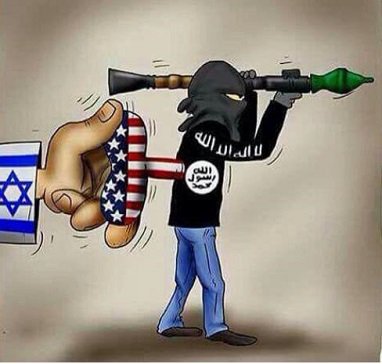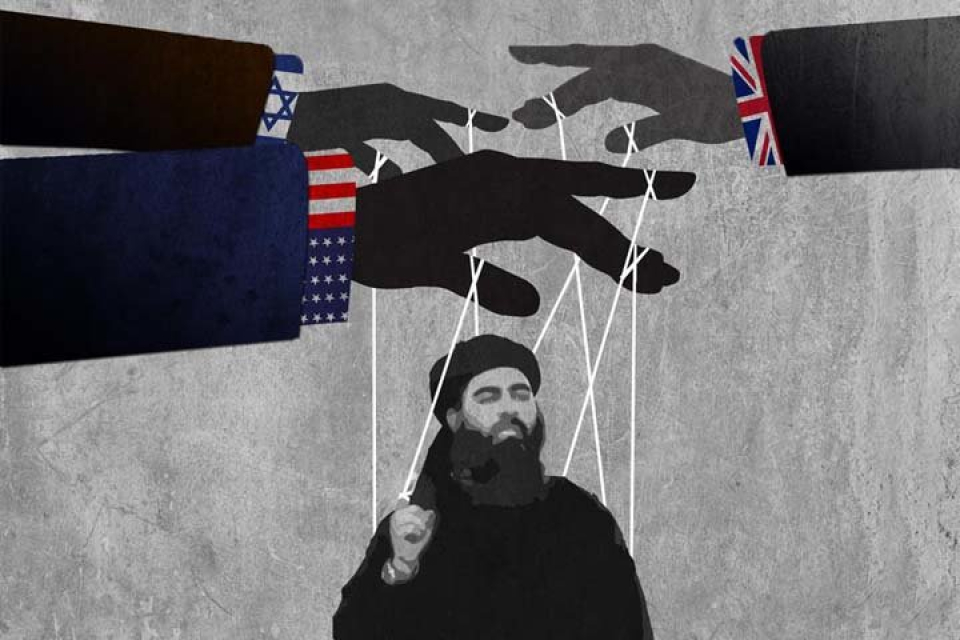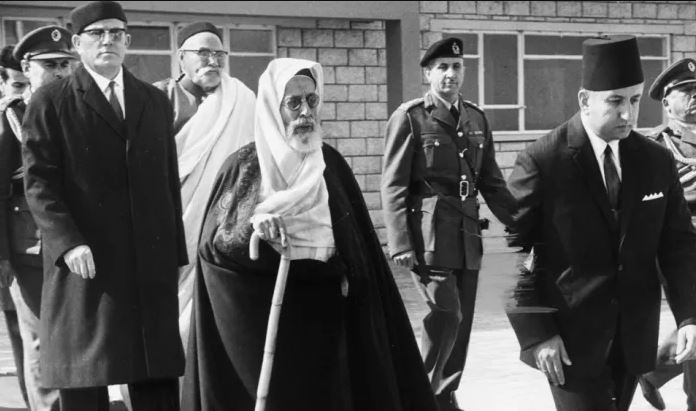By Sadegh Haghighat, Ph.D.
During the 1970s and 1980s, in response to the Soviet occupation of Afghanistan, new movements emerged in this country with deep religious fundamentalist roots. Due to their role in combatting the Soviet presence and expelling it from Middle Eastern nations, these groups consistently received financial support and armaments from the United States. One of these movements, which later gained significant notoriety due to the events of September 11, 2001, was the Al-Qaeda group led by Osama bin Laden. Following the September 11 attacks, these groups shifted from being partners and allies to becoming the primary security threat to the United States. In response to this security threat, on October 7, 2001, the United States launched a military campaign in Afghanistan, unaware that Al-Qaeda had also initiated activities in Iraq. After the U.S. invasion of Iraq in 2003, and in the wake of the power vacuum created in the country following the removal of then-President Saddam Hussein, a branch of Al-Qaeda in Iraq, known as the "Islamic State of Iraq and Syria" (ISIS), under the leadership of Abu Musab al-Zarqawi, declared its existence. This group formed the initial core of the terrorist organization known as Daesh (ISIS), which declared its presence in 2013 in the city of Mosul in northern Iraq.
While none of the Islamic jurisprudential groups within the Muslim scholarly and religious centers officially recognized Daesh (ISIS), and considered its foundations, which were based on the practice of takfir (declaring other Muslims as non-believers), as non-Islamic and disconnected from the teachings of the Quran and the Prophet's traditions, Daesh claimed that it was duty-bound to revive the Islamic caliphate based on divine obligation. Their goal was to reconstruct the Umayyad Caliphate (661-750) within Islamic territories.
The most significant characteristic of this group was its savagery and ruthless terrorist actions, perpetrated against both co-religionists and non-co-religionists under the guise of religion. Like a double-edged sword, they engaged in indiscriminate killing of Muslims and intensified a climate of extreme Islamophobia across the world. This occurred despite the fact that without the financial support and military interventions of the United States in the region, the extremist ideology of Al-Qaeda would not have proliferated to such an extent, and the natural conditions for the emergence of ISIS would not have been established[1].
After approximately four years of attritional warfare, regional resistance groups from Iraq, Syria, Iran, and Lebanon successfully defeated ISIS, reclaimed the territories under its control, and put an end to the notion of a caliphate and the formation of a state[2]. What I would like to convey in this note is that if ISIS had not been defeated and had managed to establish a state in Western Asia, what would this state have been like, and what characteristics would it have possessed? Is there any existing example in the world that can be compared to the envisioned ISIS state?

Taking a broad look at Western Asia and the nation-states in the region, one encounters a particular case that bears multiple resemblances to ISIS. It is an ideological regime that, based on distorted religious ideologies and with the assistance and support of Western powers, has begun to occupy portions of several other countries. It seeks to establish its own presumed government by sowing fear and terror. Interestingly, Zionism, which was initially a non-religious and national movement among Jews and was even rejected by many traditional Jews due to their beliefs, now claims to represent the Jewish faith and establish a Jewish state. The Zionist regime can be likened to ISIS in various aspects, some of which we will discuss below.
This regime, much like ISIS, is a product of the intervention of extra-regional powers in Western Asia and is a result of the colonial era. As Dr. Hatem Bazian substantiates with multiple pieces of evidence, Palestine can be considered the only currently colonized country in the world. This means that the people of Palestine have not yet been liberated from the oppression of British colonialism, and they continue to suffer from this issue. While the Balfour Declaration (1917) merely mentioned the right of Jewish settlement in the land of Palestine, the Zionist movement, taking advantage of the situation, proceeded with its plan to establish the Zionist state, despite the strong opposition of the Palestinian residents.
Another similarity between these two can be found in their extensive use of violence against their opponents. The images that are currently being disseminated in various international media outlets of the continuous bombing of non-combatants, women, and children in Palestine and Gaza, without regard for international rules and regulations, are reminiscent of the atrocities committed by ISIS in Iraq and Syria. The goal of both of these ideologies is to defeat the resistance of their opponents and occupy lands where they intend to govern. Along this path, they destroy everything in their way, including schools, hospitals, mosques, and even churches.
The common enemy of both these movements is indeed shared, consisting of Islamic resistance groups in the region, comprising Sunni and Shia fighters, and even Christians who reside in this area but oppose the policies of the United States in the region. They are the ones who fought against ISIS and defeated it. They are currently the only ones making efforts to defend and support the oppressed people of Palestine, despite the silence of all Western and Arab governments in the face of the atrocities committed by the Zionist regime.
What's interesting is that this common enemy has at times led to cooperation between ISIS and the Zionist regime. Perhaps the most prominent example of this cooperation is the medical treatment of wounded ISIS fighters in Zionist regime hospitals, on one hand, and the deliberate silence of the surviving members of ISIS about Israel's crimes in Palestine, on the other. It is said that despite all the atrocities it has committed, ISIS has never fired a single bullet toward Israel. This is because, according to an old saying, "the enemy of my enemy is my friend," and based on this premise, ISIS and Israel can be considered friendly.
Another similarity between these two can be observed in their non-democratic and ideological nature. Both of them, based on a deviant interpretation of their respective religious texts, regard themselves as the rightful owners of lands that have been the homes of others for years. They show little willingness to grant the minimum rights for residents of these lands to express their views on accepting or rejecting their rule. Consequently, they resort to force and violence to either suppress opponents or expel them from the land to eliminate any form of opposition. In the religious ideologies of both these groups, there is a sense of divine selection and a divine mandate for domination over the fate of other people, where nobody is considered to have the right to oppose it. In reality, with the defeat of the American-Israeli plan of ISIS, Israel now stands as the only regime in the world that does not fit within the framework of a nation-state and relies on the concept of nationality rather than citizenship. It is currently involved in an unprecedented effort to forcibly relocate genuine Palestinian citizens and create a nation exclusively for the people of Israel, where every individual of Israeli descent automatically acquires citizenship upon entry. Meanwhile, if the inhabitants and rightful owners of Palestine oppose Israeli rule, they risk being deprived of their centuries-old citizenship rights.
Despite all the similarities between ISIS and Israel, it is reasonable to believe that Israel is indeed the same as ISIS, which, with the help of supporters like the United States and some Western governments that had once committed significant atrocities against Jews, has managed to forcibly occupy parts of the land of Palestine, as well as certain segments of the legal borders of Syria and Lebanon, and establish a fabricated state there.
[1] A crucial point to note about ISIS was that its activities were entirely aligned with the interests of the United States and the Zionist regime. This alignment was evident in its devoted efforts to confront and overthrow governments opposed to American presence and opposing Israel. As it had announced, its plan encompassed Iraq, Syria, and eventually Iran, and it had meticulously strategized for this plan.
[2] Western media made significant efforts to attribute a substantial role to the United States in the defeat of ISIS. However, perhaps one of the most contentious keywords regarding the relationship between the United States and ISIS was an acknowledgment made by President Trump, in which he asserted that the Obama administration had created ISIS.

















